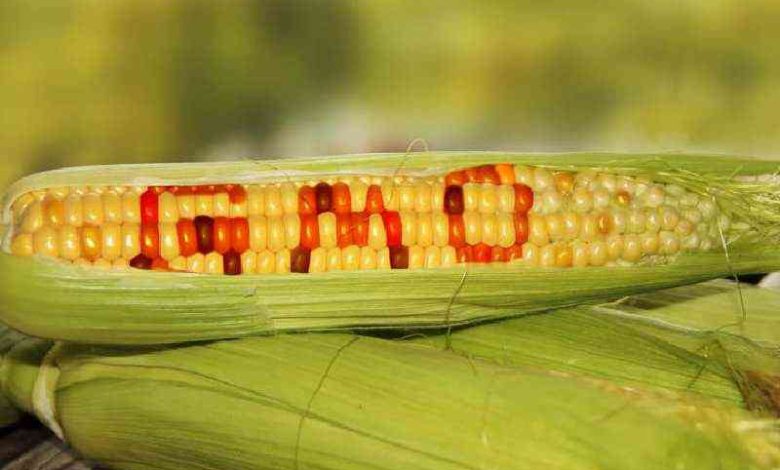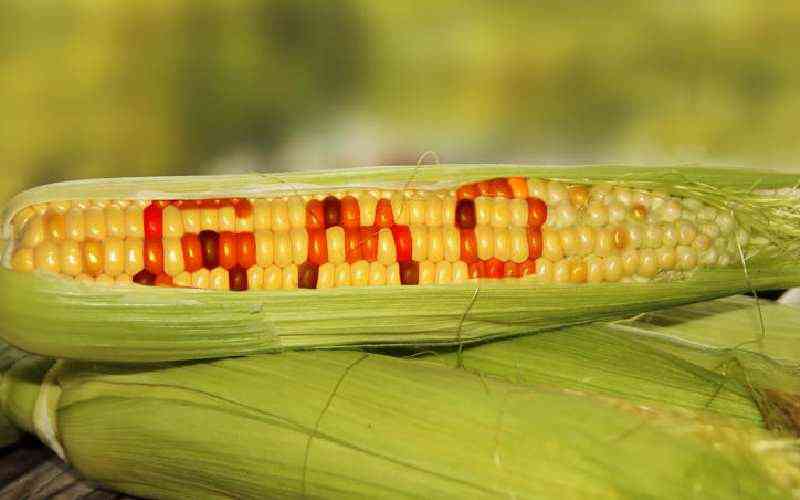
People have been modifying creatures through breeding for thousands of years. Dogs, livestock, and even maize have all undergone years of selective breeding to develop certain desirable features.

Recent developments in biotechnology have made it possible for researchers to directly alter the DNA of animals, plants, and microbes. Selective breeding and crossbreeding are two traditional methods of plant and animal modification that not only take time but also do not prevent, bad traits from mixing with beneficial traits.
Researchers have overcome this difficulty by using biotechnology to make specific DNA alterations to alter an organism’s genetic makeup without adding undesirable traits.
A GMO is therefore a plant, animal, or microorganism who’s (Deoxyribonucleic Acid) DNA has been changed through the use of genetic engineering methods.
A number of GMO animals have been produced for human consumption. For instance, the US Food and Drug Administration has determined that fish like salmon, which has undergone genetic modification to bloom more quickly, is appropriate for human consumption. Salmon is consumed in many restaurants
in Kenya.
GMOs form a significant section of the vegetable industry. The earliest genetically modified plants for human and animal nutrition were created in the midst of the 1990s. As a result, approximately 90% of the maize, legumes, and vegetables in the world market today contain GMOs.
Plants that have undergone genetic modification produce higher yields, live longer, are disease and pest resistant, and also taste delicious. Both farmers and consumers benefit from these gains. For instance, lower prices for consumers may result from improved production as well as prolonged shelf lives, whereas farmers are likely to see a reduction in costs due to lower expenditures, pesticides and applications that are due to pest-resistant crops.
GMO crops are therefore be more ecologically favorable than conventionally grown crops. That said, foods that have been genetically modified are a matter of concern.
Genetic engineering typically modifies an organism in ways that wouldn’t happen normally. It is also common practice for researchers to insert genes from alien species into living things. This raises the possibility of some GMO foods triggering unexpected allergic reactions.
Other issues include the risk of non-GMO plants and animals contracting foreign DNA from genetically modified ones. Before a GMO food has been approved for human consumption, these issues are checked and subjected to rigorous safety assessments. GMOs are also expected to play a key role in biomedical research by providing increased nutrition through the inclusion of medicinal ingredients to enhance human health.
This can only be a gain for the general population. One of the problems facing the world, especially developing countries like Kenya, is famine and hunger. There is a need for food security, which offers an adequate
supply of affordable and nutrient-rich food.
The United Nations Committee on World Food Security defines food security as people always obtaining physically, psychological, and financial accessibility to enough food that is nutritious, nourishing, and that meets the nutritional requirements for a healthy and active lifestyle. As such in addition to meeting the needs of food security, food production must be increased.
Kenya needs to generate more food than what it produces presently in order to ensure food sufficiency for subsequent generations, despite the projected adverse environmental conditions. Counties such as Kitui, Isiolo, Garissa, Mandera, Turkana amongst others that are land rich but agriculturally unproductive will
now be able to produce adequate amounts of food.
Traditional plant breeding alone has proved to be unable to satisfy Kenya’s rising food demand. It is therefore crucial to support initiatives to introduce GMOs in the agricultural sector to boost crop production in Kenya.
The development of high-yielding, nutritionally complete, and pressure-resistant agricultural and animal species using genetically modified organisms (GMOs) would enable Kenya to feed herself without reliance on imports. GMO plants can flourish in conditions where they would not ordinarily be able to because of the
development of crops that mature more quickly and can withstand environmental challenges such as salt, boron, drought, and coldness.
Kenya may even be able to produce surplus food for export thereby, increasing the income for the farmers. As aforementioned, the benefits of GMOs in the world cannot be gainsaid.
A number of animals have also undergone genetic modification to increase production and decrease susceptibility to disease, including cattle that have been developed to be resistant to mad cow disease and salmon that have been engineered to grow bigger and bloom faster.
By legalizing GMOs, Kenya is not only making a significant contribution to its economic growth but also addressing the nation’s looming food shortage that is endangering the country’s economic prospects. Adopting and using genetically modified organisms properly will boost trade, food security, income and revenue for the Kenyan economy.










